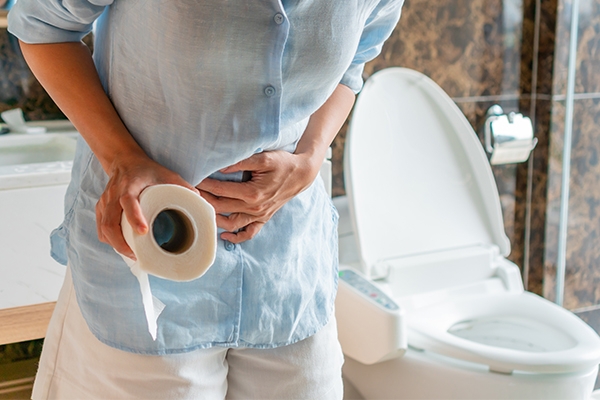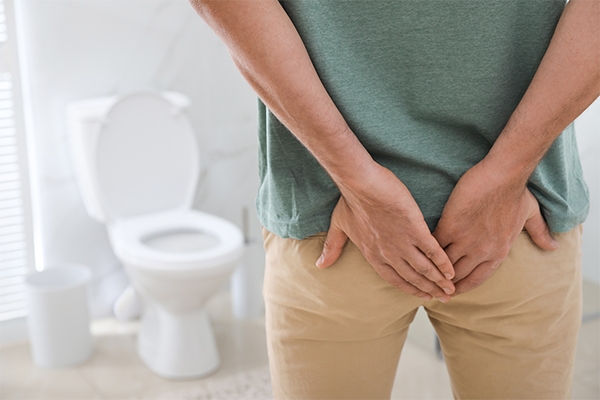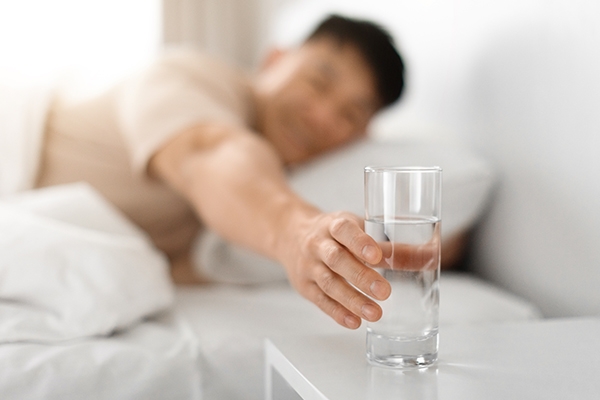How to Treat The Cause of Diarrhea

Diarrhea is a common health issue, but its impact can be serious if not treated appropriately.
Symptoms that may seem simple, like stomach aches and loose stools, can develop into dangerous conditions such as dehydration.
Understanding the symptoms, treatment, and prevention of diarrhea is critical for protecting yourself and your family from greater risks.
Diarrhea is characterized by loose or watery feces, leading the sufferer to visit the restroom more frequently, three times or more. Based on its duration, diarrhea can be divided into three types: acute, persistent, and chronic.
Acute diarrhea is the most common form. It usually lasts 1–2 days and often resolves on its own. Persistent diarrhea lasts longer, around 2–4 weeks. Meanwhile, chronic diarrhea lasts more than 4 weeks and can be an indication of a more serious health issue.
One of the main causes of diarrhea is the entry of germs into the digestive tract, whether through contaminated food or drinks. Viruses like Rotavirus are often the primary cause, but bacteria like Campylobacter, Salmonella, Shigella, and E. coli can also cause diarrhea. Transmission of diarrhea from one person to another can also occur, especially in environments with poor sanitation.
Additionally, certain types of medications, such as antibiotics, can also trigger diarrhea. Medication reactions, metabolic issues like thyroid disorders, or intestinal diseases like inflammatory bowel disease can also be causes. Food allergies and intolerances, such as milk, soy, eggs, or seafood, often trigger chronic diarrhea.
Diarrhea can also occur while traveling, especially if consuming food or drinks contaminated with bacteria or parasites. This condition is known as "traveler's diarrhea," often caused by different hygiene standards at the destination.
What are the symptoms?

Diarrhea symptoms can vary from person to person. Common symptoms usually include abdominal pain, cramping, bloating, nausea, an urgent need to defecate, or more watery stools than usual.
In more severe cases, stools may contain blood. Diarrhea can also lead to dehydration, which is characterized by symptoms such as excessive thirst, infrequent urination with dark-colored urine, dry mouth and tongue, fatigue, dizziness, or even fainting.
What should you do if you get diarrhea?

1. Drink electrolyte beverages, water, or unsweetened fruit juice. Avoid consuming milk and milk products, alcohol, coffee, soda, or caffeinated and carbonated drinks.
Sports drinks contain electrolytes that help with dehydration, but they often have added sugar or artificial sweeteners. A better alternative is to choose coconut water or oral rehydration solutions (ORS) to help manage diarrhea.
2. After each bowel movement, replenish your body’s fluids by drinking at least a cup of water.
3. Consume foods and fluids high in potassium, such as diluted fruit juice, mashed potatoes, or bananas. Avoid consuming fried, fatty, or greasy foods, and foods that can cause gas, as they can worsen diarrhea.
4. It is suggested to avoid citrus fruits and other fruits like pineapple, cherries, figs, raisins, and grapes.
5. Consume foods and fluids high in sodium, such as broths, soups, and isotonic drinks.
6. Eat foods high in soluble fiber, such as bananas, oatmeal, and rice, as they help thicken your stools.
7. Limit the intake of foods that can worsen diarrhea, such as cream, fried meals, high-dairy products, high-fat milk, and sweet foods, including those with sorbitol.
8. Avoid spicy foods as they can irritate the intestines.
What if you have mild dehydration?

Diarrhea that does not get better quickly can lead to dehydration. This dehydration can be mild, moderate, or severe. Complications may include fatigue, fever, low electrolyte levels, seizures, heat stroke, urinary tract infections, kidney stones, and even kidney failure.
In the most severe cases, dehydration can put pressure on the heart and lungs, potentially leading to life-threatening shock.
Individuals with diarrhea are advised to replace lost fluids by drinking more water or oral rehydration solutions (ORS) to prevent it. ORS effectively replenishes the fluids and electrolytes lost from the body due to diarrhea and usually works within 3–4 hours of consumption.
During this time, monitoring for any side effects or allergic reactions that may occur from using ORS is important.
Water is a good substance for replacing fluids but does not contain salts and electrolytes—minerals such as sodium and potassium— essential for the body to function properly.
You can help maintain electrolyte levels by drinking fruit juice to replace potassium or consuming soup to increase sodium.
Can diarrhea be prevented?

Diarrhea can be prevented with the following actions:
1. Regularly wash your hands with soap, especially before eating and after using the toilet. Proper handwashing can keep you and others around you from getting diarrhea.
2. Vaccination. Rotavirus is one of the viruses that cause diarrhea and can be prevented through vaccination. The rotavirus vaccine is usually given to infants at 2, 4, and 6 months of age.
3. Store food properly. Make sure you do not consume spoiled food. Store food at the correct temperature and handle all food safely.
4. Consume food and drinks that have been washed and cooked safely.
**
If diarrhea does not improve but shows symptoms such as bloody stool, fever, nausea or vomiting, diarrhea lasting more than 2 days, and severe pain, especially in the lower right or back, immediately click WhatsApp or visit GWS Medika Clinic, health clinic in Jakarta.



